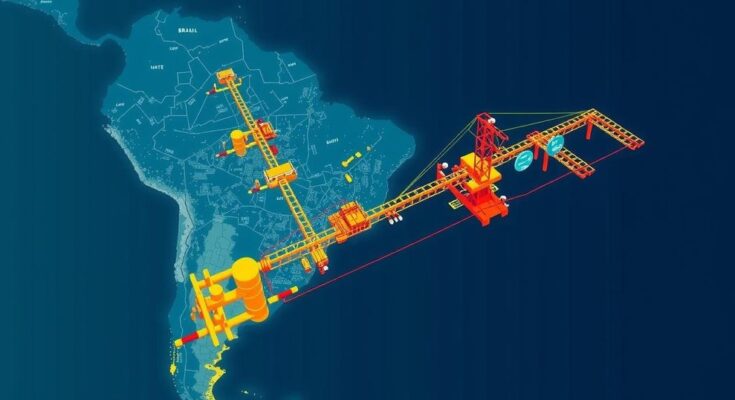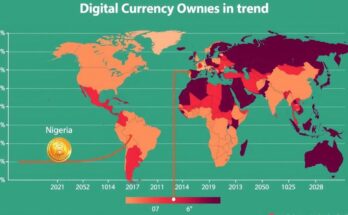Brazil is advancing plans to import natural gas from Argentina’s Vaca Muerta formation, strengthening economic ties despite political challenges. A memorandum of understanding aims to facilitate infrastructure for gas imports projected to reach 30 million cubic meters per day by 2030, helping both nations meet their energy and industrial growth objectives.
Brazil is progressing on importing natural gas from Argentina’s Vaca Muerta formation, signaling a possibility for business collaborations despite existing political tensions. The Brazilian Energy Ministry has signed a memorandum of understanding with Argentina aimed at enhancing infrastructure for natural gas supplies. This initiative is projected to enable a daily import of up to 30 million cubic meters of gas by 2030, fostering industrial growth across Brazil. The agreement reflects the ability of business transactions to transcend the complicated political dynamics between Brazilian President Luiz Inácio Lula da Silva and his Argentine counterpart Javier Milei. Both leaders have publicly clashed since last year, with Lula’s campaign team working for Milei’s political rival and Milei previously categorizing Brazil’s leadership as part of a “communist” group. The newly established memorandum will facilitate the formation of a bilateral working group to evaluate what is required to make the importation of Argentine natural gas economically feasible. The agreement is also advantageous for Argentina, as it seeks to find a marketplace for its extensive natural gas reserves to boost production. Brazil aims to commence with an import of two million cubic meters of gas per day by the start of next year, ramping this up to a total of 10 million cubic meters within three years. The expected cost of gas from the Vaca Muerta region is anticipated to be significantly lower than the current average price, approximating half of the existing US$14 per BTU. Initially, the gas will be transported utilizing a pipeline through Bolivia, although concerns regarding transportation costs remain unresolved. Historically, Bolivia had provided Brazil and Argentina with natural gas until production diminished. Additional transport solutions might include developing new pipelines within Argentina or Paraguay, or utilizing liquefied natural gas shipments from Argentine terminals to Brazilian ports.
The ongoing collaboration between Brazil and Argentina in the natural gas sector illustrates the complexities and interdependencies of their political and economic ties. The Vaca Muerta formation, noted for its vast reserves of natural gas, presents significant opportunities for both nations. Given the historical context of their relationship, characterized by fluctuating political sentiments, this agreement represents a pragmatic approach to mutual economic benefit amidst political rivalry.
In summary, Brazil’s advances in importing natural gas from Argentina underscore the potential for economic cooperation to navigate political complexities. The memorandum of understanding aims to construct essential infrastructure and optimize costs, enabling Brazil to meet its energy needs while supporting Argentina’s production goals. This initiative is anticipated not only to enhance bilateral relations but also to stimulate growth in both economies, setting a precedent for future collaborations.
Original Source: www.batimes.com.ar




